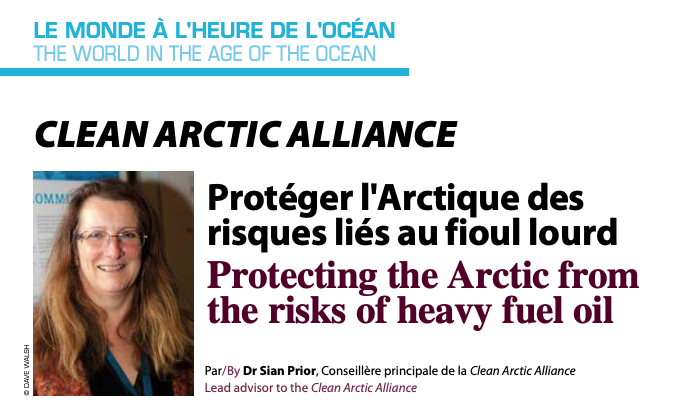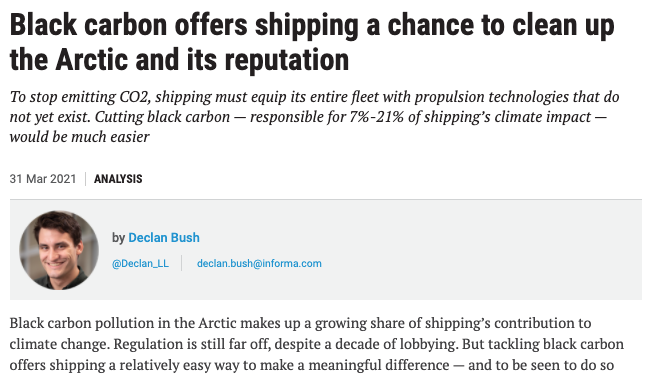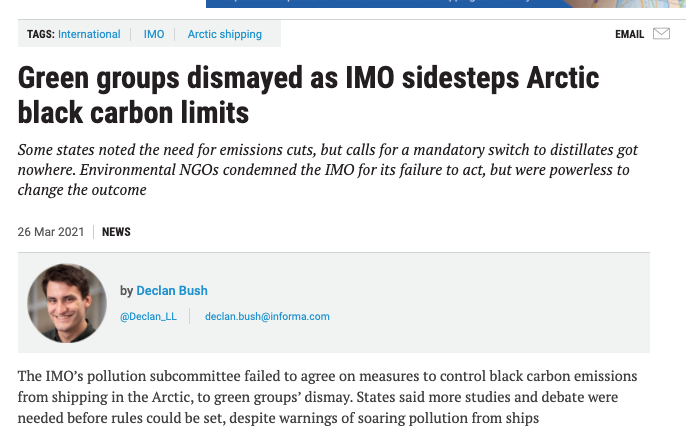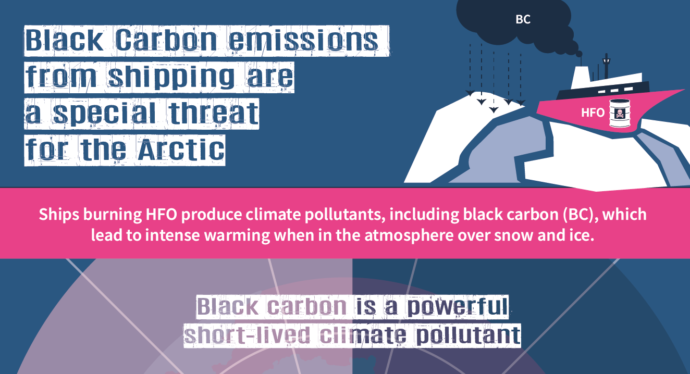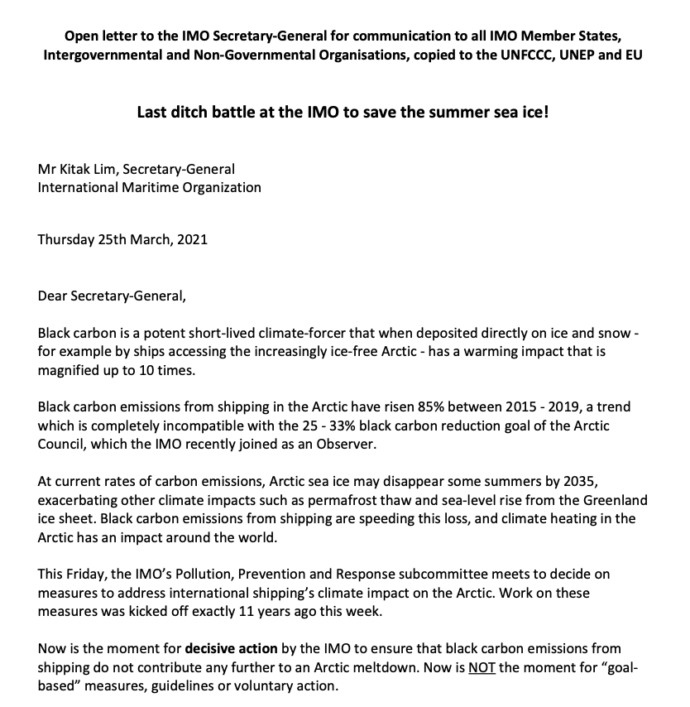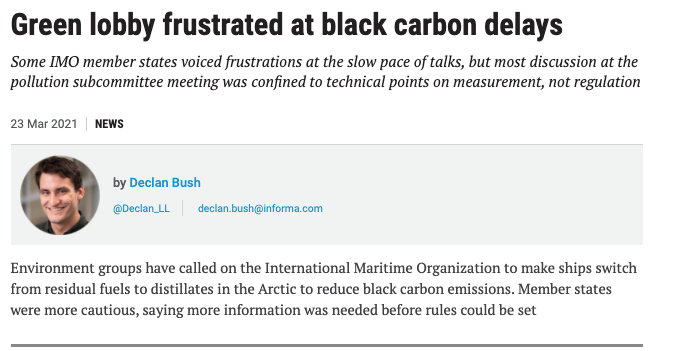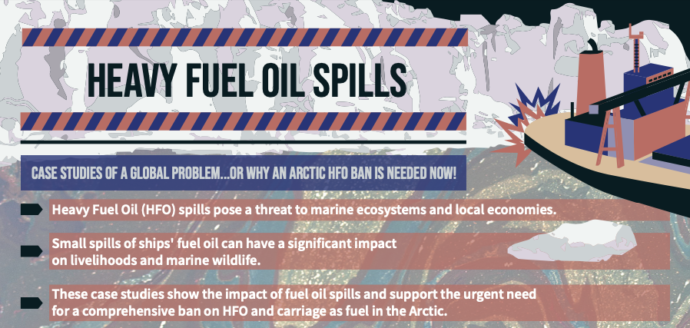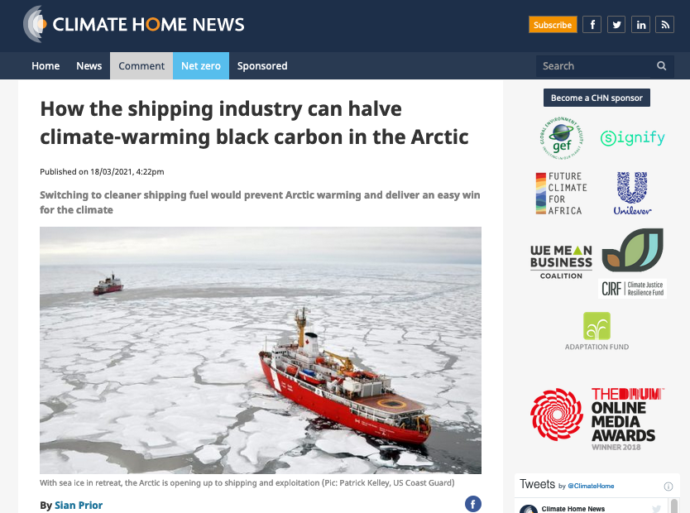Marine & Ocean: Protecting the Arctic from the risks of heavy fuel oil
Article by the Clean Arctic Alliance’s Dr Sian Prior in Marine & Oceans, issue 270: “The Arctic is changing, with climate heating having a greater impact on the region than anywhere else on Earth. Not only does this create greater climatic uncertainty for those living both inside and beyond the Arctic, the loss of sea ice opens up the Arctic to new threats, such as oil spills from expanded shipping operations.”

